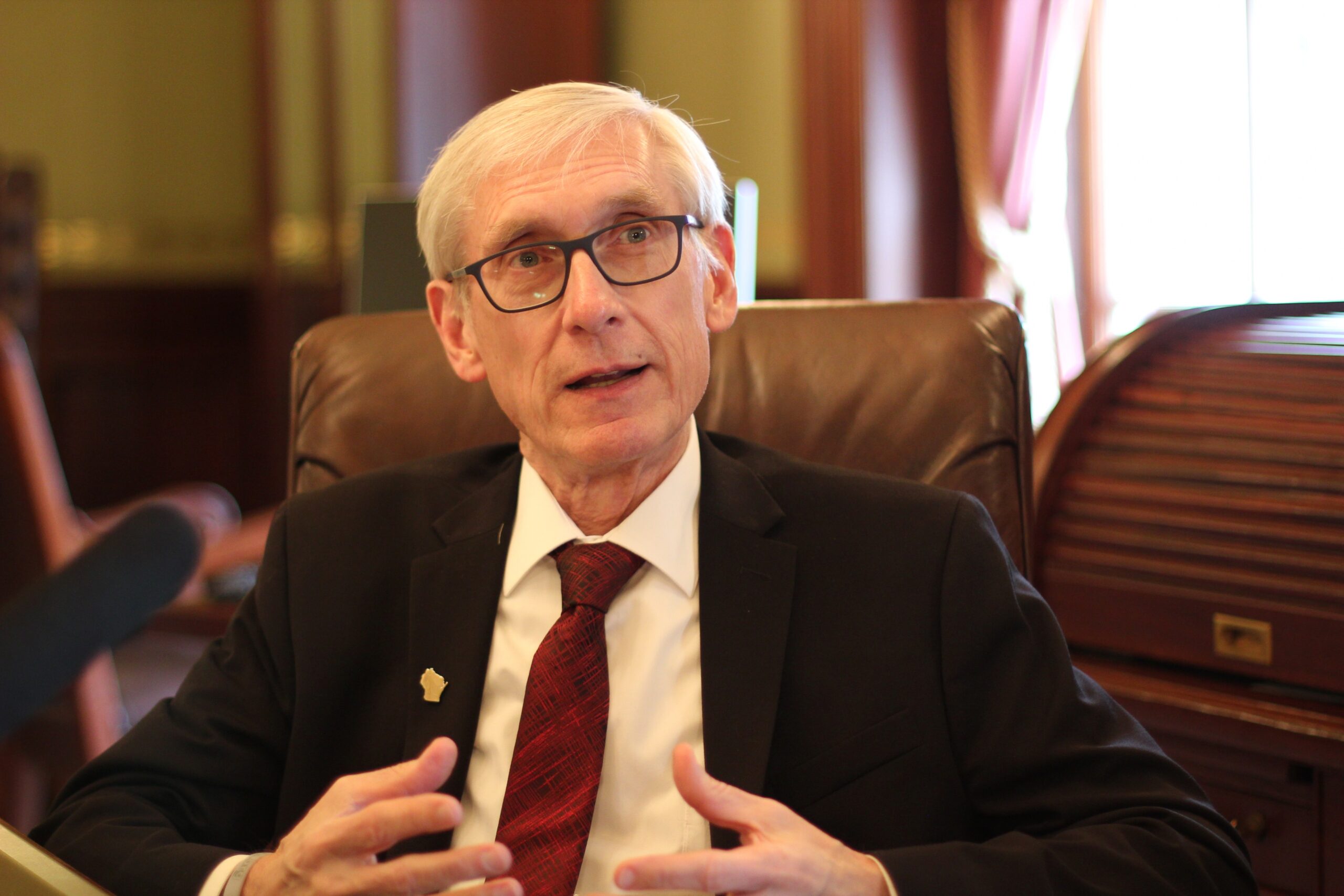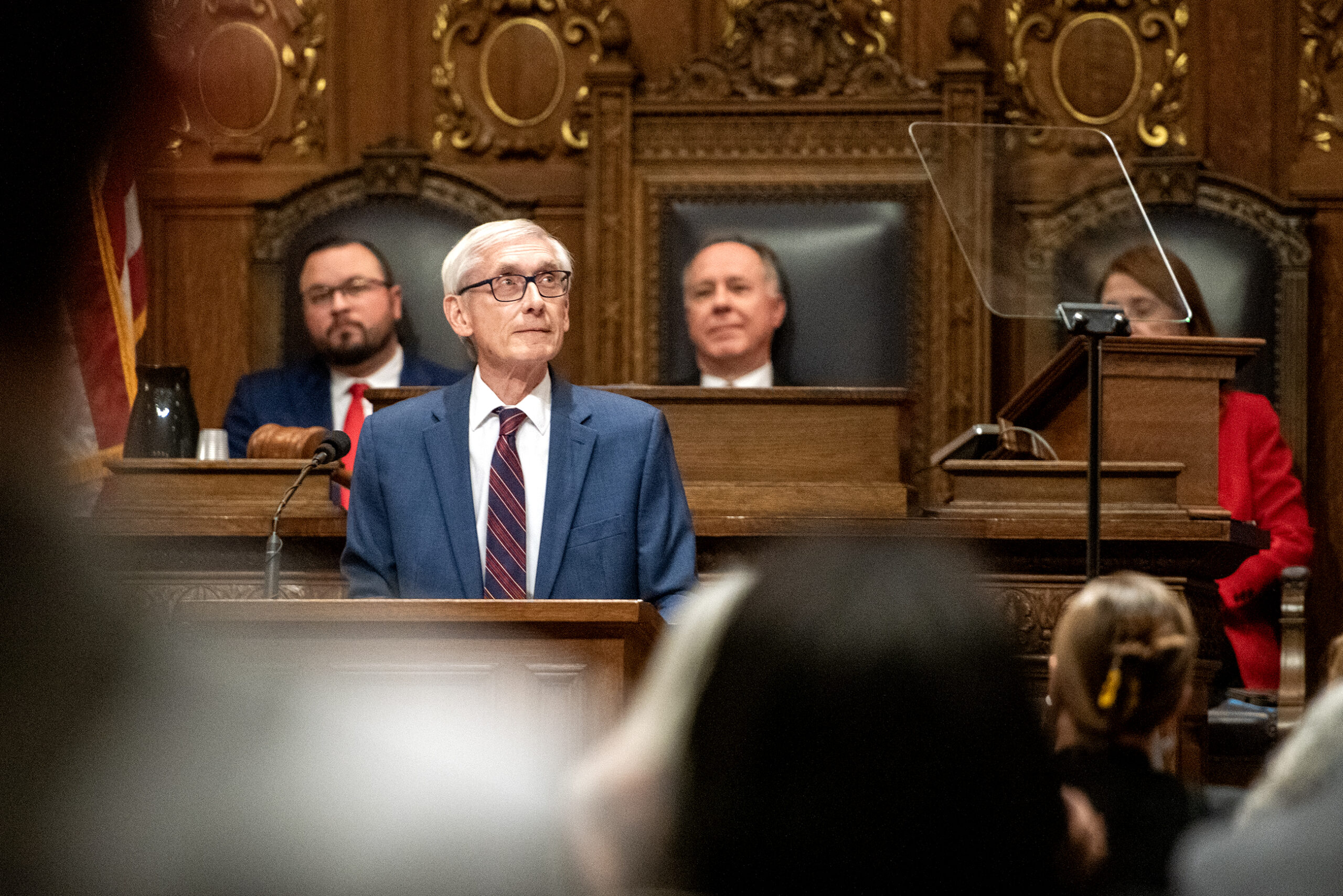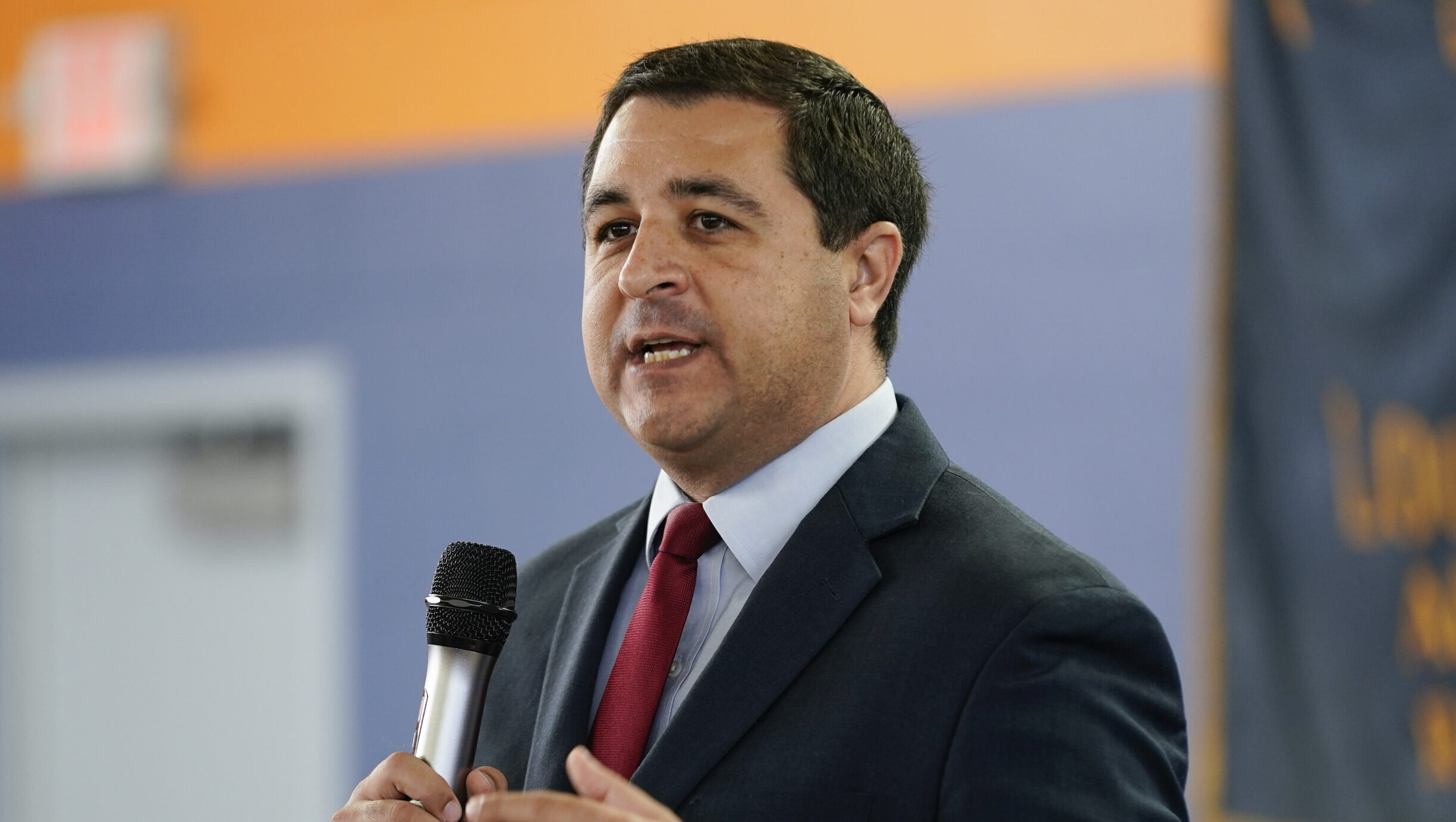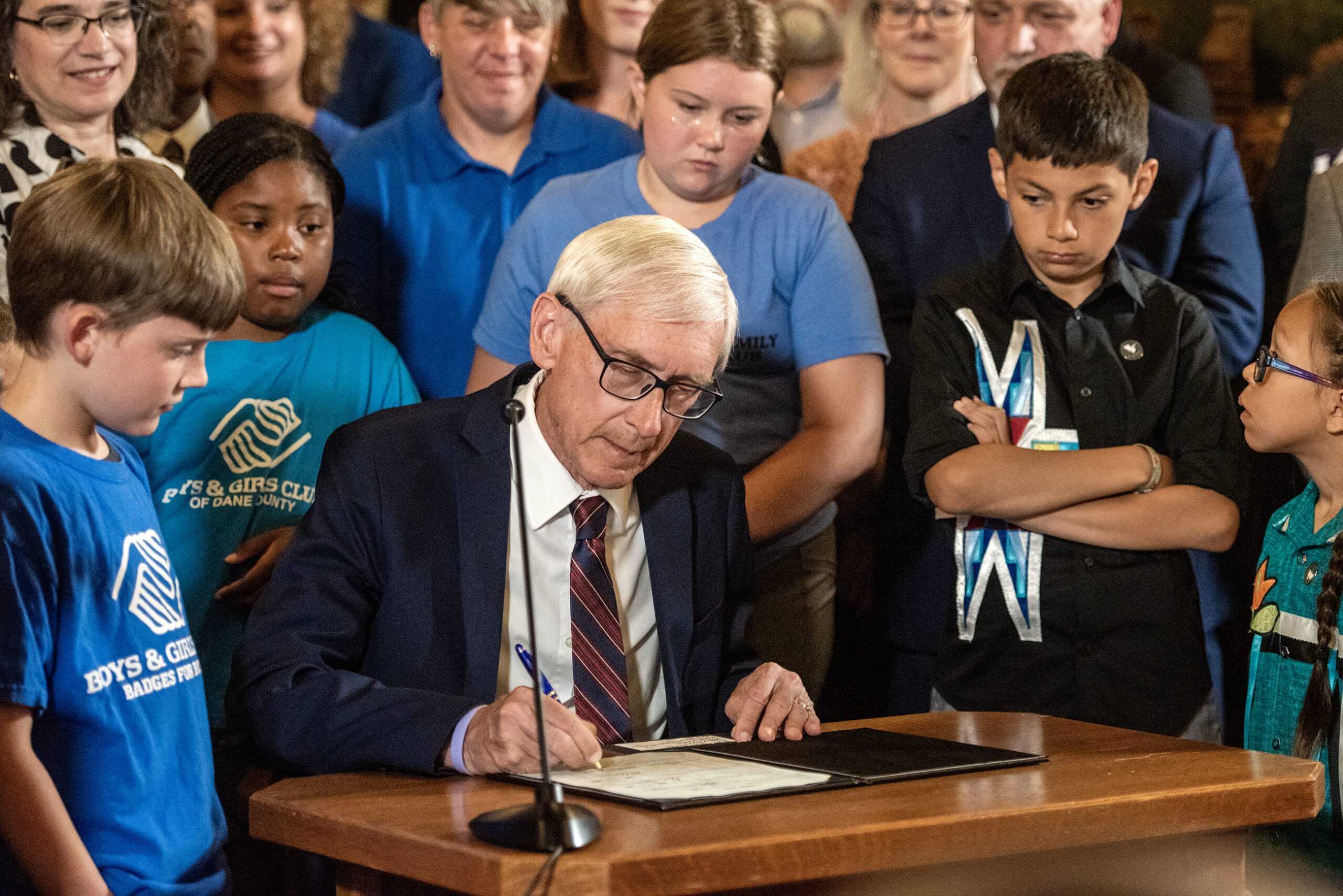One hundred days into Gov. Tony Evers’ term, his impressions of the governor’s office are still being influenced by lame-duck laws signed by his predecessor.
Evers is fighting the laws in several court cases, which have escalated a dispute with Republican state senators over several appointees of former Gov. Scott Walker.
The laws prevent him from unilaterally undoing other Walker initiatives, ranging from a work requirement for Medicaid recipients to the state Capitol’s security policy.
Stay informed on the latest news
Sign up for WPR’s email newsletter.
In an interview from his state Capitol office, Evers said the lame-duck changes created “hangover issues” that have dragged on.
“It impedes conversations,” Evers said. “It impedes our work.”
While the laws have restricted his powers as governor, practically speaking, divided government has played a bigger role in keeping Evers from accomplishing everything he’d like.
One-hundred days in, the governor has yet to sign a bill, and while his proposed budget would check off a long list of Democratic priorities, Republicans have called it a non-starter.
Evers said he isn’t surprised by the gridlock, but he still thinks pieces of his budget have a chance to prevail.
“At the end of the day, I believe that we’re in the position to win some of these arguments,” Evers said.
Lame-Duck Fight Continues
Evers has sided with plaintiffs in three of the lawsuits filed to overturn the lame-duck laws, and he’s used one of the decisions to exercise powers that were taken away from him by Republican lawmakers.
When Dane County Judge Richard Niess ruled on March 21 that the entire December lame-duck session was unlawful, Evers moved quickly.
Just hours after the decision, Evers directed Attorney General Josh Kaul to leave a multi-state lawsuit against the Affordable Care Act, a step they had been unable to accomplish under one of the lame-duck changes.
And the next day, Evers rescinded 82 of Walker’s appointees.
While Evers has reappointed most of the Walker picks, he hasn’t budged on others, including Public Service commissioner Ellen Nowak and University of Wisconsin regent Scott Beightol. Both were confirmed by Republican senators to terms that would end in 2023.
For a governor who regularly talks about the need for both parties to work together, he defends fighting Republicans on these cabinet picks.
“They matter a heck of a lot,” Evers said. “I was a member of the Board of Regents for 10 years and it was — I understand how important a role they played in public policy as it relates to the University of Wisconsin System.”
An appeals court stayed Niess’ ruling on March 27, putting it on hold while the case is appealed. That effectively closed the window for Evers to use other gubernatorial powers that were taken away from him.
Asked why he didn’t take other steps after Niess’ ruling and before it was stayed, the governor offered a brief answer.
“We can only do so many legal analyses at one time,” Evers said.
Budget Fight Ahead
Republicans have said repeatedly that the budget that Evers introduced in February won’t pass the Legislature because it would increase taxes by more than $1 billion.
They’ve also said his plan to take a federal expansion of Medicaid won’t pass, which would trim Evers’ two-year budget by another $320 million.
The governor said that would be a mistake, pointing to a recent Marquette poll showing 70 percent of voters support the idea.
“I just don’t think we can just in a knee-jerk way say that 70 percent — we don’t care about that,” Evers said. “I think that’s political suicide, frankly.”
That same poll showed 59 percent of the public opposed to increasing the gas tax, another major piece of the governor’s budget. Evers said he wasn’t surprised by that number, but noted polling also shows the public wants to see roads fixed.
While Evers concedes that he’ll have to compromise with Republicans, he said the final budget needed to “make significant advances” in the areas of health care, education and roads — all issues on which he campaigned last year.
“I know we can reach common ground,” Evers said. “Republicans don’t want bad schools, bad roads or bad health care, so let’s find a way to do it. And we will.”
One Bill Veto, No Bill Signings
Asked what he viewed as a major accomplishment so far, Evers said he was proud of the executive order he signed requiring agencies to develop policies banning employee discrimination based on sexual orientation or gender identity.
“Making sure that all folks are treated well is I think a significant accomplishment,” Evers said.
But in terms of the volume of what he’s been able to accomplish, Evers’ first 100 days could hardly contrast any more sharply with the early days of Gov. Scott Walker’s administration.
By mid-April of 2011, Walker, with the help of large GOP majorities in both houses of the Legislature, had already signed several major laws, including Act 10.
Evers, by contrast, has yet to sign a single bill, and has vetoed only one.
Evers said he’s not surprised by that part of his job.
“No because I think people recognized that divided government would help stop the flood of legislation because they’re assuming there has to be a bipartisan flavor to it or it likely will be veto,” Evers said.
Evers said he’s not afraid to veto bills, and he’s raised the prospect that he might veto the entire budget if Republicans make too many changes. But he said he expects he’ll be signing legislation soon enough.
“I know Republicans are working hard to get Democrats on their bills,” Evers said. “So this is a good thing. It’s forcing conversation.”
Wisconsin Public Radio, © Copyright 2025, Board of Regents of the University of Wisconsin System and Wisconsin Educational Communications Board.







